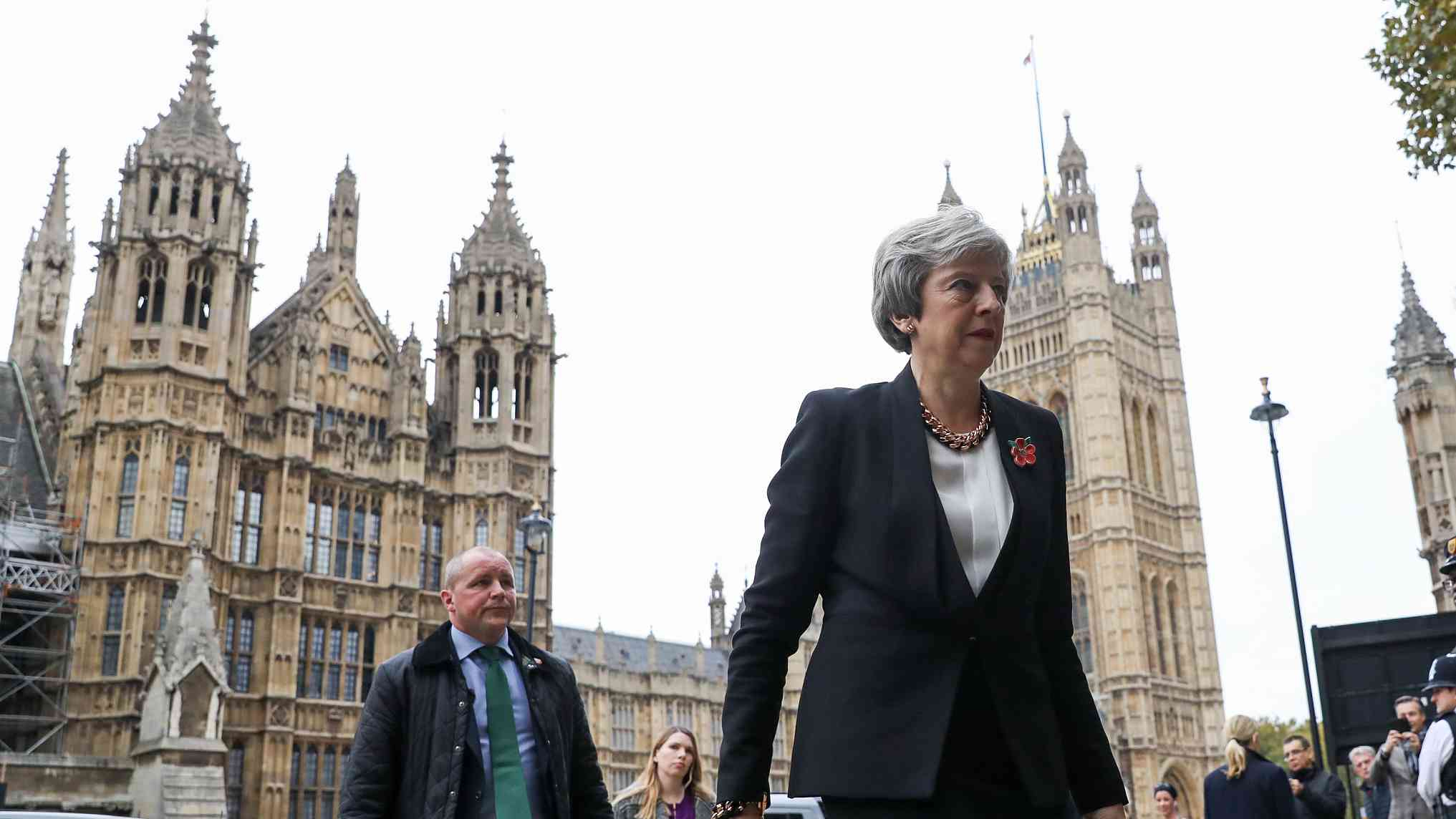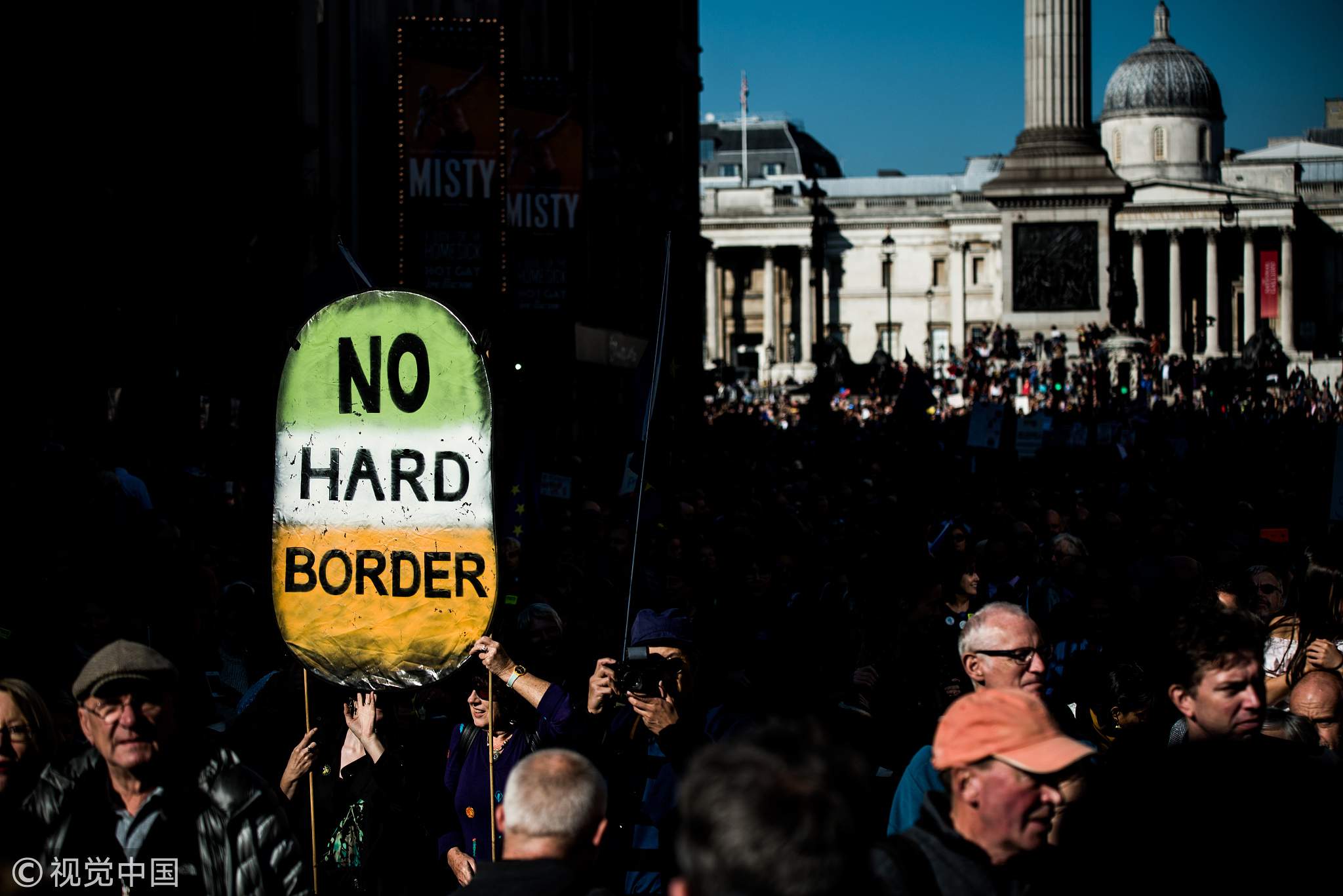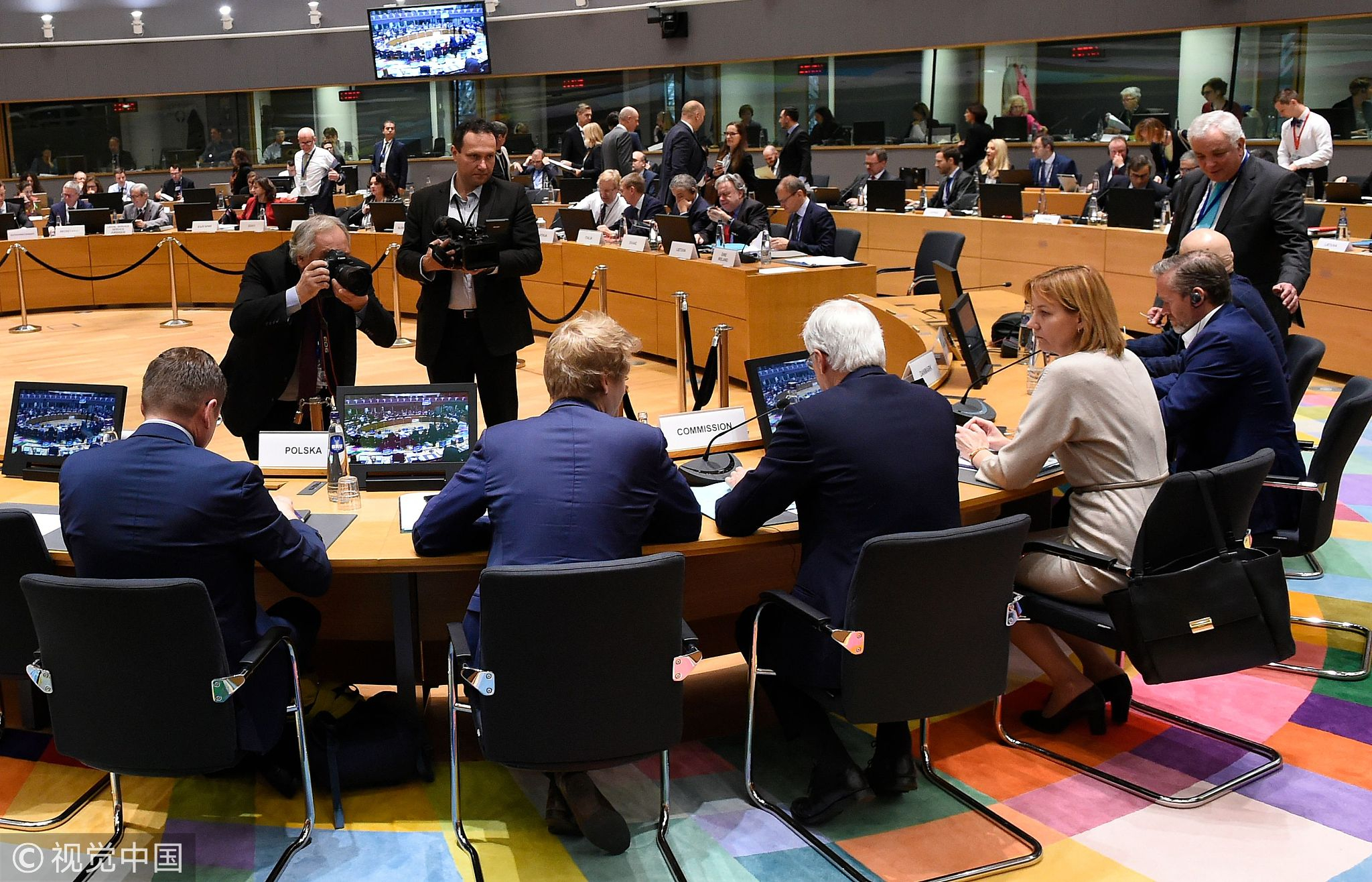
Opinions
18:55, 13-Nov-2018
Brexit crunch looms for May as opponents grow in Parliament
Updated
18:03, 16-Nov-2018
Peter Doran

Editor's note: Peter Doran is a lecturer at the School of Law, Queen's University Belfast. The Senator George J Mitchell Institute for Global Peace, Security and Justice and Centre for Evidence and Social Innovation.The article reflects the author's views, and not necessarily those of CGTN.
British Prime Minister Theresa May can only deliver a Brexit that – like her leadership of the Conservative Party - nobody voted for. May was anointed leader after a preliminary nomination process that saw her main rivals withdrew before a final leadership ballot was put to all members of the Conservative Party.
That sobering truth was placed front, left and center of Britain's broken Brexit process last week when the former May loyalist, Jo Johnson MP, resigned from his post as Transport Minister. He pulled out of the government denouncing its negotiations with the EU as a “catastrophe of statecraft” and pledged to vote against the prime minister's emerging transition deal with the EU should it reach the House of Commons, where its defeat is now likely.
Johnson has joined a growing swell of support – inside and outside Parliament - for a so-called “People's Vote” instead, to endorse remaining in the European Union.

Hundreds of thousands of pro-EU supporters take part in the People's Vote march followed by a rally in Parliament Square to demand a final say on the Brexit deal on October 20, 2018, in London, UK. /VCG Photo
Hundreds of thousands of pro-EU supporters take part in the People's Vote march followed by a rally in Parliament Square to demand a final say on the Brexit deal on October 20, 2018, in London, UK. /VCG Photo
The significance of Jo Johnson's ministerial resignation is the extent to which it reveals disaffection among even May loyalists in the face of the emerging withdrawal transition deal with the EU. As Anthony Barnett has observed, the question facing the UK is this: “Should a country like the UK remain within the European regulated space and its model of capitalism (supported by Japan and China) or should it seek to embrace a deregulated model spearheaded by the Trump administration (supported by Russia and Saudi Arabia)?”
In the absence of a decisive negotiating mandate either within her own Party or in the House of Commons, May has been inching towards a deal with the EU that will satisfy nobody and merely mobilize a coalition of opponents.
For the same reasons, her negotiating hand with the EU has been undermined as she is forced to conduct a series of negotiations within her own party, and with the Northern Ireland Democratic Unionist Party who are supporting the Conservatives in the House of Commons under a ‘confidence and supply' arrangement.
The factions lined up against May's emerging transitional deal, which would see the UK continuing to comply with the EU's trade and regulatory regime while a permanent new relationship is negotiated, include:
- Brexiteers led by former Foreign Minister, Boris Johnson, who wants Theresa May's job and a US-style deregulated economy in the style of Trump.
- The Northern Ireland Democratic Unionist Party.
- The shy and not so shy Conservative Party Remainers, now led by Boris Johnson's brother, Jo, and Anna Soubry MP, who may defect in the event of a House of Commons vote on the basis of the current Brexit transition deal, which will satisfy nobody and simply dramatize the contradictions of May's fractured mandate;

Chief EU negotiator for Brexit, Michel Barnier (C- back) attends a General Affairs council focused on the Article 50 of the EU Treaty, at the European Council in Brussels on November 12, 2018. /VCG Photo
Chief EU negotiator for Brexit, Michel Barnier (C- back) attends a General Affairs council focused on the Article 50 of the EU Treaty, at the European Council in Brussels on November 12, 2018. /VCG Photo
- Jeremy Corbyn MP and the Labour opposition who have calculated that May's troubles could lead to a collapse of her Government and a possible early General Election (but only if two-thirds of the House of Commons vote for this outcome, under fixed-term election legislation); failing this, Labour could support a new referendum to prevent the UK crashing out of the EU without a deal.
- A cross-party coalition of Members of Parliament and Members of the House of Lords in favor of a new referendum.
Whatever the chaos that emerges, the UK Chief of Defense Staff, General Nick Carter has declared that he stands read to pick up the pieces if there is a no-deal Brexit, resulting in the default adoption of WTO rules and a hard border in Ireland.
(If you want to contribute and have specific expertise, please contact us at opinions@cgtn.com)

SITEMAP
Copyright © 2018 CGTN. Beijing ICP prepared NO.16065310-3
Copyright © 2018 CGTN. Beijing ICP prepared NO.16065310-3